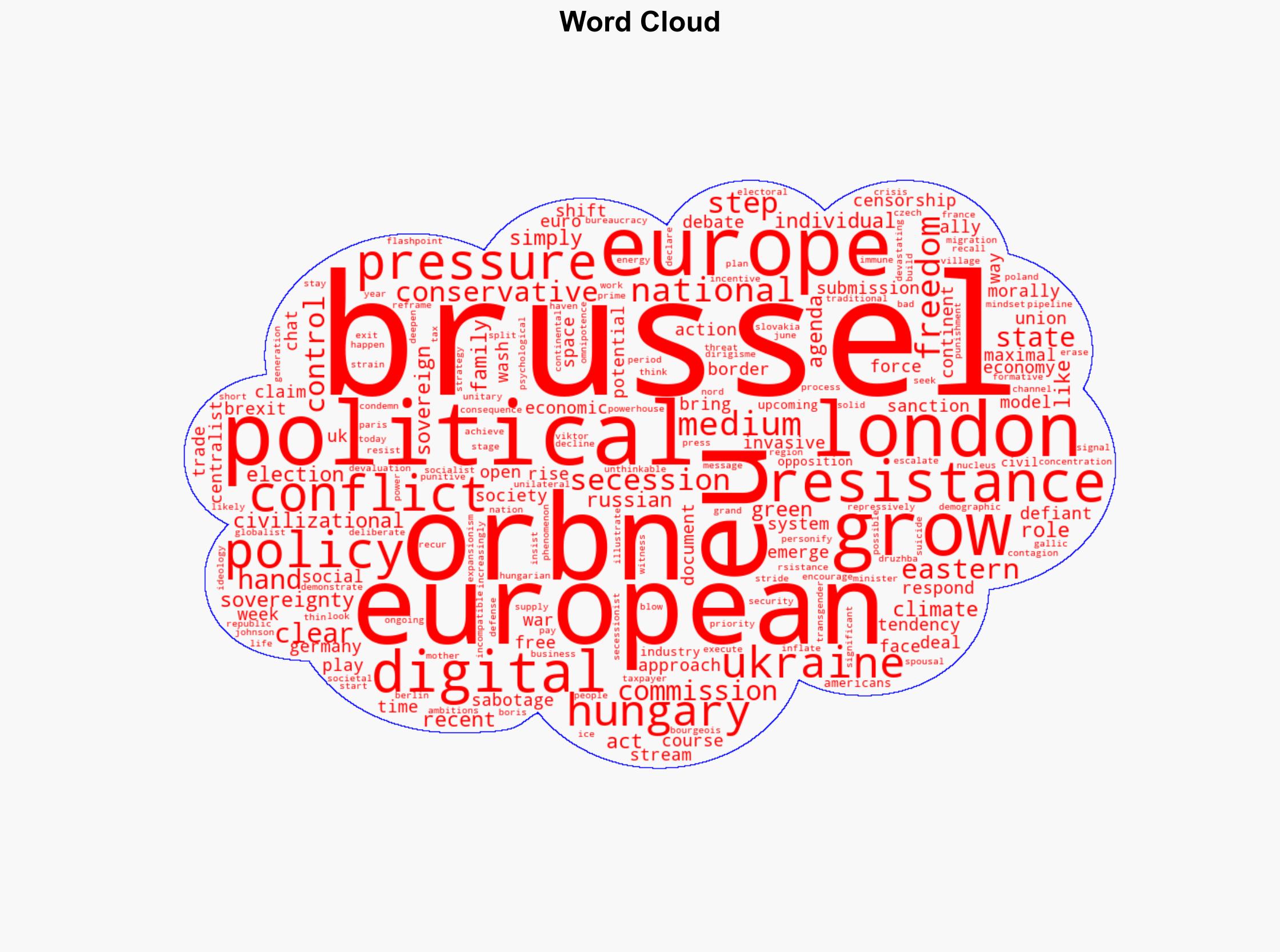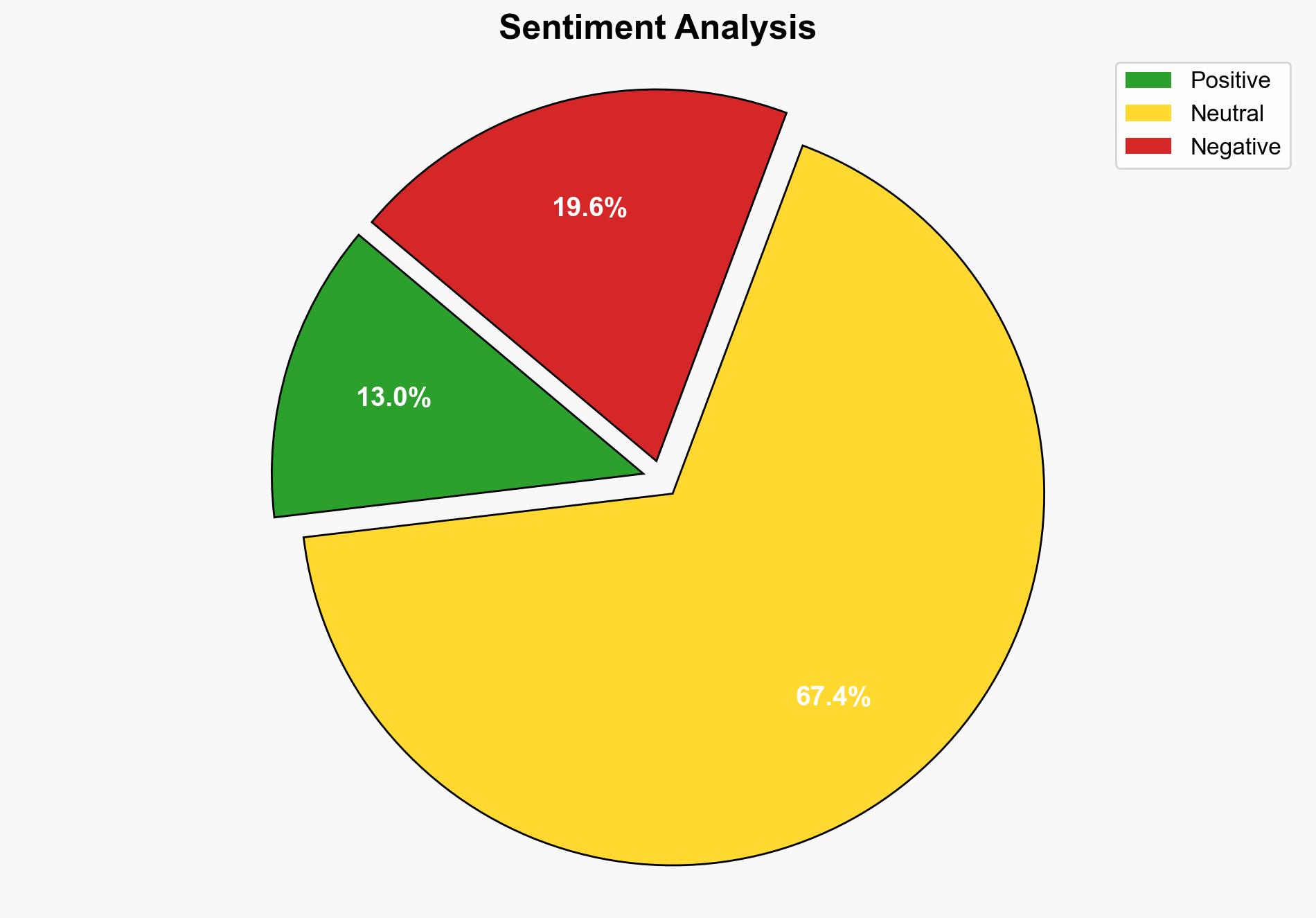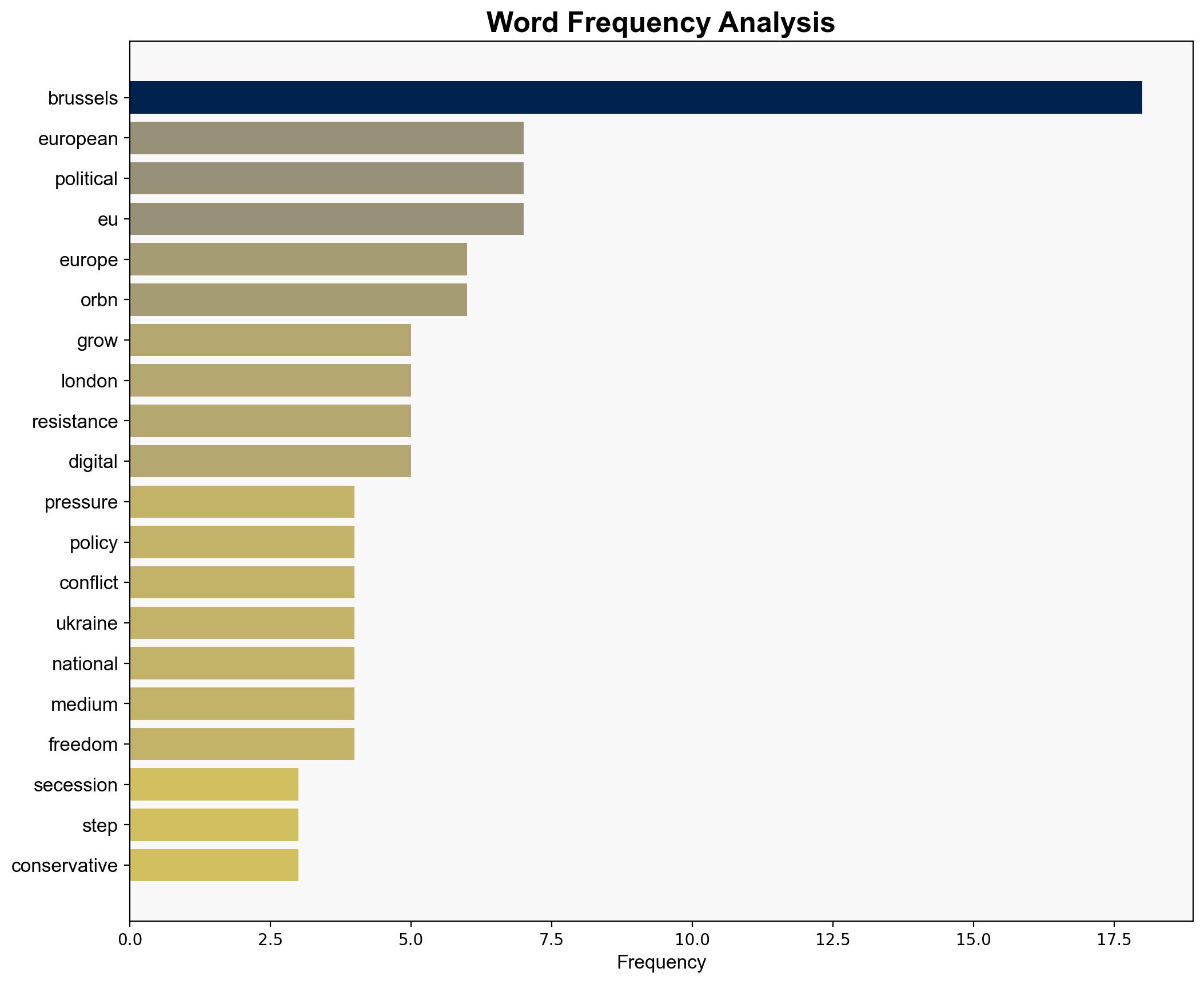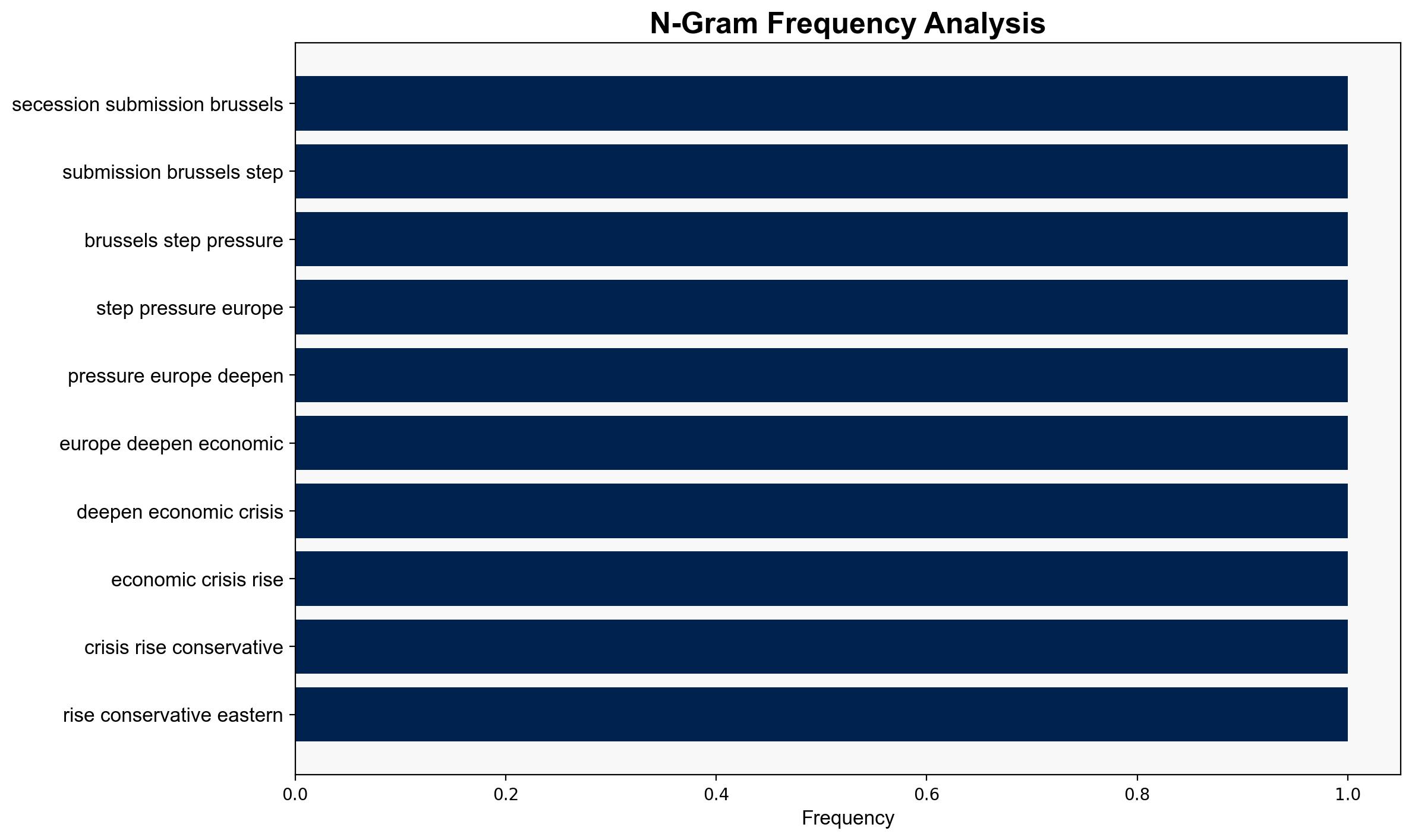Secession or Submission Brussels Steps Up the Pressure – Americanthinker.com
Published on: 2025-11-01
Intelligence Report: Secession or Submission Brussels Steps Up the Pressure – Americanthinker.com
1. BLUF (Bottom Line Up Front)
The European Union (EU) faces increasing internal pressure from Eastern European nations, particularly Hungary, challenging its centralist policies. The most supported hypothesis suggests that these tensions could lead to a rise in secessionist movements within the EU, driven by national sovereignty concerns. Confidence level: Moderate. Recommended action: EU should engage in diplomatic dialogue with dissenting nations to address their concerns and prevent potential fragmentation.
2. Competing Hypotheses
1. **Hypothesis A**: Eastern European countries, led by Hungary, will increasingly resist EU centralization, potentially leading to secessionist movements. This hypothesis is supported by Hungary’s policies under Viktor Orbán, which emphasize national sovereignty and resist EU’s open-border policies.
2. **Hypothesis B**: Despite current tensions, Eastern European countries will ultimately submit to EU pressure due to economic dependencies and political incentives. This hypothesis considers the EU’s economic leverage and the potential consequences of secession, such as loss of EU funding and market access.
Using the Analysis of Competing Hypotheses (ACH) 2.0, Hypothesis A is better supported due to the consistent pattern of resistance from Hungary and similar sentiments in other Eastern European countries.
3. Key Assumptions and Red Flags
– **Assumptions**: It is assumed that Hungary’s resistance is primarily driven by national sovereignty concerns rather than economic factors. Another assumption is that the EU’s centralization efforts are perceived as overreaching by Eastern European nations.
– **Red Flags**: Potential cognitive bias includes overestimating the impact of Hungary’s policies on other Eastern European nations. Inconsistent data may arise from varying reports on the economic impact of EU membership on these countries.
4. Implications and Strategic Risks
The rise of secessionist sentiments could lead to a fragmented EU, weakening its geopolitical influence. Economic risks include potential disruptions in trade and investment flows. Geopolitically, a fragmented EU may struggle to present a unified front against external threats, such as Russian influence in Eastern Europe. Psychologically, the EU’s reputation as a stable political entity may be undermined.
5. Recommendations and Outlook
- Engage in diplomatic dialogue with Hungary and other dissenting nations to address their concerns and explore potential compromises.
- Consider revising centralization policies to allow for greater national autonomy within the EU framework.
- Scenario-based projections:
- Best: Successful negotiations lead to a more flexible EU structure, reducing secessionist pressures.
- Worst: Failure to address concerns results in one or more countries initiating secession processes.
- Most Likely: Continued tensions with periodic negotiations, maintaining the status quo but with underlying instability.
6. Key Individuals and Entities
– Viktor Orbán: Prime Minister of Hungary, central figure in the resistance against EU centralization.
– EU Commission: Key entity in implementing and enforcing EU policies.
7. Thematic Tags
national security threats, regional focus, geopolitical stability, economic integration




